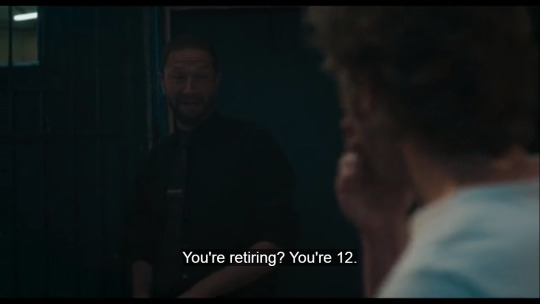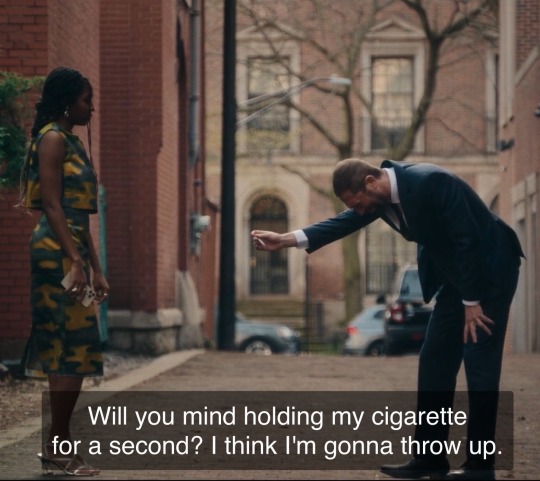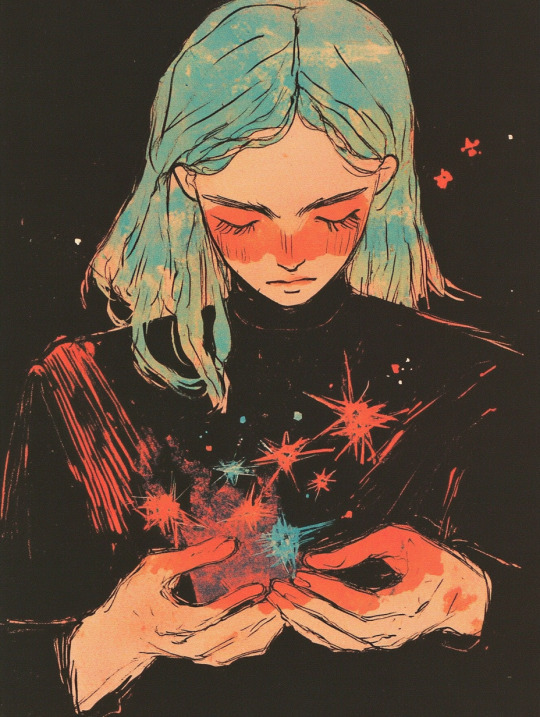Don't wanna be here? Send us removal request.
Text
Wowowow hold on she’s not a groomer! That’s a totally different discussion
If the 16-year-old doesn’t speak up, there’s no crime, right?
Came across this post:
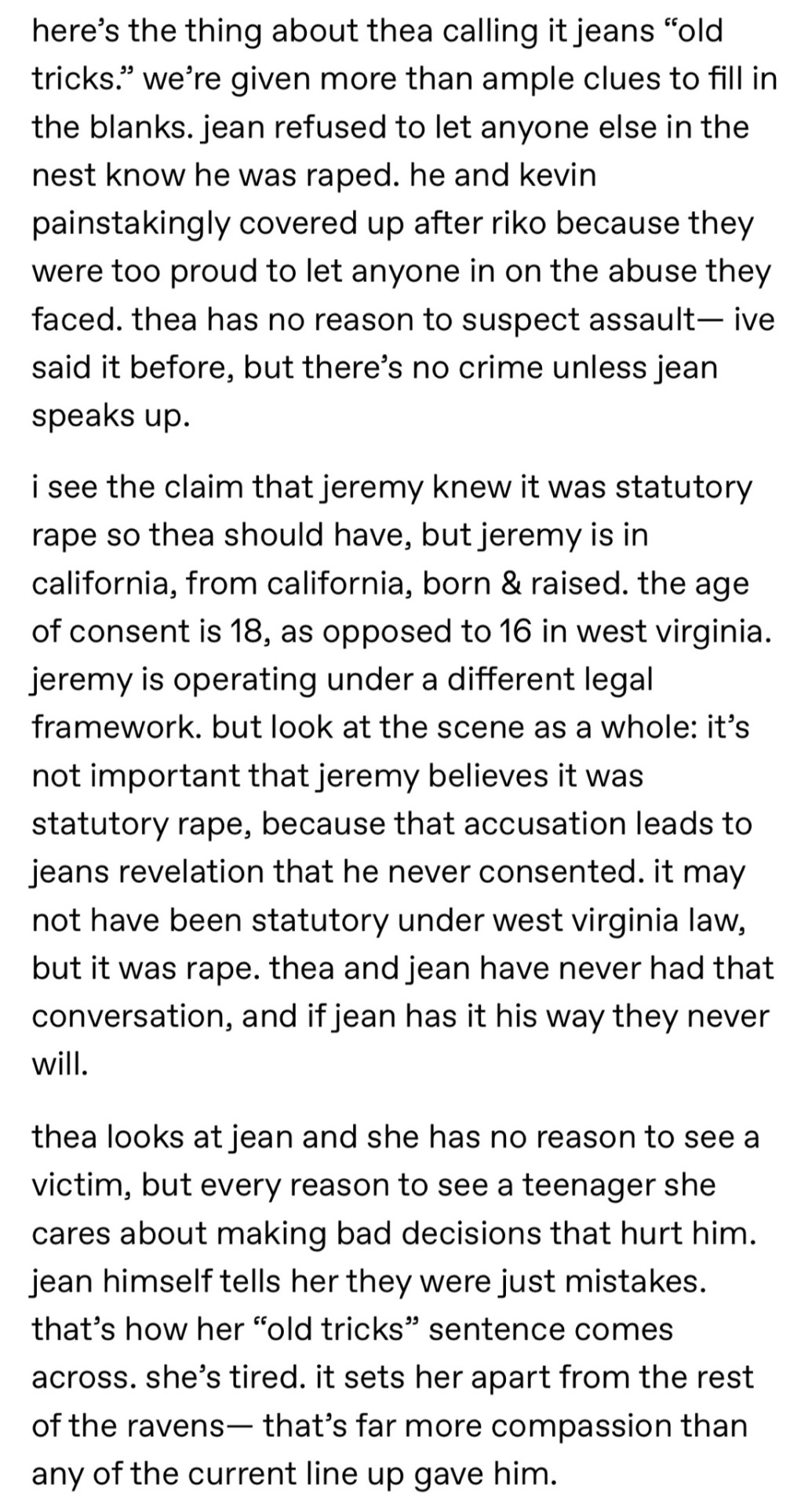
What makes this argument deeply disturbing is the way it rationalizes Thea’s dismissal of Jean’s trauma through a combination of victim-blaming, legal technicalities (a whole paragraph dedicated to the age of consent in West Virginia vs. California), and emotional deflection—all while somehow spinning her response as compassionate (? It shifts the responsibility onto Jean for not speaking up, and ignores the weight of context, power dynamics, and obvious signs of distress. And yet, at the end Thea is framed as the one showing care. It’s a masterclass in institutional gaslighting disguised as nuance. Which is so raven of OP.
1. “No crime unless Jean speaks up”
This is perhaps the most jarring part. Are we really suggesting that unless a survivor explicitly says “I was raped,” there’s no wrongdoing to be acknowledged? Is OP seriously shifting the burden of proof and moral responsibility onto the traumatized, minor party? When said traumatized party was 16 and Thea’s own eyes were 22 going 23 at the time of the events? Yes, Kevin later echoes similar language in TGR, but let’s not forget: Kevin was raised in a cult from the age of eight. His judgement and inability to call abuse what it is isn’t a moral compass.
2. Rape as a legal technicality
This argument brings up the age of consent across state lines to defend Thea’s supposed ignorance, which centers legality over ethics—Jean being 16 and passed around by adult teammates (most the same age as Thea) shouldn’t be morally ambiguous just because it may not meet statutory definitions.
The argument tries to defend Thea’s ignorance by citing the age of consent in West Virginia (16) vs. California (18), as if statutory definitions were the only metric for harm. But this isn’t just a legal issue—it’s an ethical one. Jean was 16, passed around by adults Thea’s age, in a violent cult environment where he clearly showed signs of distress. The whole ordeal shouldn’t be morally ambiguous just because it may not meet statutory definitions.
And it’s ironic: we talk all the time about how brainwashed Thea was into normalizing all kinds of abuse for the sake of stickball—but now we’re supposed to believe she was well-versed in legal nuances and clear-headed enough to clock the implications of Virginian consent law? You can’t have it both ways.
3. Excusing Thea’s comment based on Jean’s own silence!!!!!
Yes, Jean says “they were just mistakes” and that he liked it—but we’re also told he came to practice with bite marks, sobbed through the night, and carried visible pain. Again: he was sixteen. Using a traumatized kid’s own minimization to justify a 22–23-year-old’s dismissal—especially in a setting where vulnerability is punished—is deeply unsettling. No, Thea wasn’t obligated to be Jean’s protector. But the fact that years later, outside the Nest, she still chose to interpret his silence and suffering through a phrase like “old tricks”—which implies manipulation, cunning, and blame—is absolutely worth examining.
4. “Old tricks” is rebranded as compassion ???
Framing her comment and “tired tone” as compassionate rather than apathetic or cruel is revisionist. “Old tricks” in this context refers to Jean being sexually exploited as a minor in a tone that implies scheming. If Thea really, to quote the post, “ had no reason to see a victim but every reason to see a struggling teen she cared about making bad choices” , why refer to it that way? You don’t call a 16-year-old getting passed around by your peers “old tricks” unless you’re trying to frame his abuse as his own manipulation.
English is not my first language but quick search gave me these definitions:
Cambridge Dictionary: “If someone is up to their old tricks, they are behaving in the bad or dishonest way that they used to in the past.”
Collins Dictionary: “If you say that someone is up to their old tricks, you mean that they are behaving in a dishonest or unpleasant way, as they often did in the past.”
Also, to claim this is compassionate compared to the current Ravens is a stretch and a low bar.
5. Apparently we are praising Thea for not being worse
The post tries to frame Thea’s restraint—as in, the fact that she didn’t mock or assault Jean—as somehow virtuous. But we actually have no confirmation that she didn’t join in the mocking. Jean never says either way. And if anything, her wording years later in TSC (“old tricks”) and her praise of Tetsuji’s legacy in TGR suggest she likely followed his lead back then when he shamed and punished Jean for being a whore. Her stance was most likely not as neutral / bystander as some of you make it up to be.
And her behavior in TSC and TGR certainly doesn’t read as compassionate. She:
Threatens to break Jean’s ribs unless he talks
Calls him “Paris” while he’s visibly upset
Only shows concern when she’s not getting what she wants and is told to go away
And continues to uphold Raven ideology, pledging loyalty to Tetsuji even after everything.
In short, the defense post reads less like a nuanced analysis and more like a masterclass in institutional gaslighting—an elaborate attempt to justify an adult character’s apathy toward a minor everyone in the Nest knew was being specifically targeted and tortured (as Jean himself says). It’s so raven of OP. It prioritizes Thea’s emotional comfort over Jean’s trauma and reframes her dismissiveness as empathy. That’s what makes it so deeply unsettling.
P.S. For perspective, here are some photos of actual 16-year-old actors. Take a look and ask yourself—would it not be jarring to see a 22- or 23-year-old adult sleeping with someone who looks like that? Don't you “oh but Tom Holland and Thomas Sangster look way too young for their age”, because Jean himself said that the other ravens were “so much smaller bigger and stronger”, so he might have as well been a Tom Holland type.

230 notes
·
View notes
Text
In conclusion:
STOP using legal frameworks to justify dismissal of abuse!! Kevin brings up the age of consent as a tool to justify his cult framework. Jeremy wasn’t listening to that shit — he immediately walked away, and Kevin had to grab his arm to keep him standing there for that cult nonsense.
The weird-ass apathy Kevin and Thea show stems from the cult setting, not from some legality they kept tucked inside that setting.
If the 16-year-old doesn’t speak up, there’s no crime, right?
Came across this post:

What makes this argument deeply disturbing is the way it rationalizes Thea’s dismissal of Jean’s trauma through a combination of victim-blaming, legal technicalities (a whole paragraph dedicated to the age of consent in West Virginia vs. California), and emotional deflection—all while somehow spinning her response as compassionate (? It shifts the responsibility onto Jean for not speaking up, and ignores the weight of context, power dynamics, and obvious signs of distress. And yet, at the end Thea is framed as the one showing care. It’s a masterclass in institutional gaslighting disguised as nuance. Which is so raven of OP.
1. “No crime unless Jean speaks up”
This is perhaps the most jarring part. Are we really suggesting that unless a survivor explicitly says “I was raped,” there’s no wrongdoing to be acknowledged? Is OP seriously shifting the burden of proof and moral responsibility onto the traumatized, minor party? When said traumatized party was 16 and Thea’s own eyes were 22 going 23 at the time of the events? Yes, Kevin later echoes similar language in TGR, but let’s not forget: Kevin was raised in a cult from the age of eight. His judgement and inability to call abuse what it is isn’t a moral compass.
2. Rape as a legal technicality
This argument brings up the age of consent across state lines to defend Thea’s supposed ignorance, which centers legality over ethics—Jean being 16 and passed around by adult teammates (most the same age as Thea) shouldn’t be morally ambiguous just because it may not meet statutory definitions.
The argument tries to defend Thea’s ignorance by citing the age of consent in West Virginia (16) vs. California (18), as if statutory definitions were the only metric for harm. But this isn’t just a legal issue—it’s an ethical one. Jean was 16, passed around by adults Thea’s age, in a violent cult environment where he clearly showed signs of distress. The whole ordeal shouldn’t be morally ambiguous just because it may not meet statutory definitions.
And it’s ironic: we talk all the time about how brainwashed Thea was into normalizing all kinds of abuse for the sake of stickball—but now we’re supposed to believe she was well-versed in legal nuances and clear-headed enough to clock the implications of Virginian consent law? You can’t have it both ways.
3. Excusing Thea’s comment based on Jean’s own silence!!!!!
Yes, Jean says “they were just mistakes” and that he liked it—but we’re also told he came to practice with bite marks, sobbed through the night, and carried visible pain. Again: he was sixteen. Using a traumatized kid’s own minimization to justify a 22–23-year-old’s dismissal—especially in a setting where vulnerability is punished—is deeply unsettling. No, Thea wasn’t obligated to be Jean’s protector. But the fact that years later, outside the Nest, she still chose to interpret his silence and suffering through a phrase like “old tricks”—which implies manipulation, cunning, and blame—is absolutely worth examining.
4. “Old tricks” is rebranded as compassion ???
Framing her comment and “tired tone” as compassionate rather than apathetic or cruel is revisionist. “Old tricks” in this context refers to Jean being sexually exploited as a minor in a tone that implies scheming. If Thea really, to quote the post, “ had no reason to see a victim but every reason to see a struggling teen she cared about making bad choices” , why refer to it that way? You don’t call a 16-year-old getting passed around by your peers “old tricks” unless you’re trying to frame his abuse as his own manipulation.
English is not my first language but quick search gave me these definitions:
Cambridge Dictionary: “If someone is up to their old tricks, they are behaving in the bad or dishonest way that they used to in the past.”
Collins Dictionary: “If you say that someone is up to their old tricks, you mean that they are behaving in a dishonest or unpleasant way, as they often did in the past.”
Also, to claim this is compassionate compared to the current Ravens is a stretch and a low bar.
5. Apparently we are praising Thea for not being worse
The post tries to frame Thea’s restraint—as in, the fact that she didn’t mock or assault Jean—as somehow virtuous. But we actually have no confirmation that she didn’t join in the mocking. Jean never says either way. And if anything, her wording years later in TSC (“old tricks”) and her praise of Tetsuji’s legacy in TGR suggest she likely followed his lead back then when he shamed and punished Jean for being a whore. Her stance was most likely not as neutral / bystander as some of you make it up to be.
And her behavior in TSC and TGR certainly doesn’t read as compassionate. She:
Threatens to break Jean’s ribs unless he talks
Calls him “Paris” while he’s visibly upset
Only shows concern when she’s not getting what she wants and is told to go away
And continues to uphold Raven ideology, pledging loyalty to Tetsuji even after everything.
In short, the defense post reads less like a nuanced analysis and more like a masterclass in institutional gaslighting—an elaborate attempt to justify an adult character’s apathy toward a minor everyone in the Nest knew was being specifically targeted and tortured (as Jean himself says). It’s so raven of OP. It prioritizes Thea’s emotional comfort over Jean’s trauma and reframes her dismissiveness as empathy. That’s what makes it so deeply unsettling.
P.S. For perspective, here are some photos of actual 16-year-old actors. Take a look and ask yourself—would it not be jarring to see a 22- or 23-year-old adult sleeping with someone who looks like that? Don't you “oh but Tom Holland and Thomas Sangster look way too young for their age”, because Jean himself said that the other ravens were “so much smaller bigger and stronger”, so he might have as well been a Tom Holland type.

230 notes
·
View notes
Text
? Unless Thea was a pre-law major or a mandated reporter herself, I’m not sure why that’s relevant. Your original post literally said: “Jeremy knew it was statutory rape so Thea should have, but Jeremy is in California… Jeremy is operating under a different legal framework.” So weren’t you implying that Thea’s dismissal of Jean’s possible statutory rape was more understandable because West Virginia law is different? That’s the part I’m pushing back on — not your personal knowledge of consent laws. I never implied you didn’t care? I’m literally talking about Thea’s mentality, not yours.
Sorry I didn’t tag you.
If the 16-year-old doesn’t speak up, there’s no crime, right?
Came across this post:

What makes this argument deeply disturbing is the way it rationalizes Thea’s dismissal of Jean’s trauma through a combination of victim-blaming, legal technicalities (a whole paragraph dedicated to the age of consent in West Virginia vs. California), and emotional deflection—all while somehow spinning her response as compassionate (? It shifts the responsibility onto Jean for not speaking up, and ignores the weight of context, power dynamics, and obvious signs of distress. And yet, at the end Thea is framed as the one showing care. It’s a masterclass in institutional gaslighting disguised as nuance. Which is so raven of OP.
1. “No crime unless Jean speaks up”
This is perhaps the most jarring part. Are we really suggesting that unless a survivor explicitly says “I was raped,” there’s no wrongdoing to be acknowledged? Is OP seriously shifting the burden of proof and moral responsibility onto the traumatized, minor party? When said traumatized party was 16 and Thea’s own eyes were 22 going 23 at the time of the events? Yes, Kevin later echoes similar language in TGR, but let’s not forget: Kevin was raised in a cult from the age of eight. His judgement and inability to call abuse what it is isn’t a moral compass.
2. Rape as a legal technicality
This argument brings up the age of consent across state lines to defend Thea’s supposed ignorance, which centers legality over ethics—Jean being 16 and passed around by adult teammates (most the same age as Thea) shouldn’t be morally ambiguous just because it may not meet statutory definitions.
The argument tries to defend Thea’s ignorance by citing the age of consent in West Virginia (16) vs. California (18), as if statutory definitions were the only metric for harm. But this isn’t just a legal issue—it’s an ethical one. Jean was 16, passed around by adults Thea’s age, in a violent cult environment where he clearly showed signs of distress. The whole ordeal shouldn’t be morally ambiguous just because it may not meet statutory definitions.
And it’s ironic: we talk all the time about how brainwashed Thea was into normalizing all kinds of abuse for the sake of stickball—but now we’re supposed to believe she was well-versed in legal nuances and clear-headed enough to clock the implications of Virginian consent law? You can’t have it both ways.
3. Excusing Thea’s comment based on Jean’s own silence!!!!!
Yes, Jean says “they were just mistakes” and that he liked it—but we’re also told he came to practice with bite marks, sobbed through the night, and carried visible pain. Again: he was sixteen. Using a traumatized kid’s own minimization to justify a 22–23-year-old’s dismissal—especially in a setting where vulnerability is punished—is deeply unsettling. No, Thea wasn’t obligated to be Jean’s protector. But the fact that years later, outside the Nest, she still chose to interpret his silence and suffering through a phrase like “old tricks”—which implies manipulation, cunning, and blame—is absolutely worth examining.
4. “Old tricks” is rebranded as compassion ???
Framing her comment and “tired tone” as compassionate rather than apathetic or cruel is revisionist. “Old tricks” in this context refers to Jean being sexually exploited as a minor in a tone that implies scheming. If Thea really, to quote the post, “ had no reason to see a victim but every reason to see a struggling teen she cared about making bad choices” , why refer to it that way? You don’t call a 16-year-old getting passed around by your peers “old tricks” unless you’re trying to frame his abuse as his own manipulation.
English is not my first language but quick search gave me these definitions:
Cambridge Dictionary: “If someone is up to their old tricks, they are behaving in the bad or dishonest way that they used to in the past.”
Collins Dictionary: “If you say that someone is up to their old tricks, you mean that they are behaving in a dishonest or unpleasant way, as they often did in the past.”
Also, to claim this is compassionate compared to the current Ravens is a stretch and a low bar.
5. Apparently we are praising Thea for not being worse
The post tries to frame Thea’s restraint—as in, the fact that she didn’t mock or assault Jean—as somehow virtuous. But we actually have no confirmation that she didn’t join in the mocking. Jean never says either way. And if anything, her wording years later in TSC (“old tricks”) and her praise of Tetsuji’s legacy in TGR suggest she likely followed his lead back then when he shamed and punished Jean for being a whore. Her stance was most likely not as neutral / bystander as some of you make it up to be.
And her behavior in TSC and TGR certainly doesn’t read as compassionate. She:
Threatens to break Jean’s ribs unless he talks
Calls him “Paris” while he’s visibly upset
Only shows concern when she’s not getting what she wants and is told to go away
And continues to uphold Raven ideology, pledging loyalty to Tetsuji even after everything.
In short, the defense post reads less like a nuanced analysis and more like a masterclass in institutional gaslighting—an elaborate attempt to justify an adult character’s apathy toward a minor everyone in the Nest knew was being specifically targeted and tortured (as Jean himself says). It’s so raven of OP. It prioritizes Thea’s emotional comfort over Jean’s trauma and reframes her dismissiveness as empathy. That’s what makes it so deeply unsettling.
P.S. For perspective, here are some photos of actual 16-year-old actors. Take a look and ask yourself—would it not be jarring to see a 22- or 23-year-old adult sleeping with someone who looks like that? Don't you “oh but Tom Holland and Thomas Sangster look way too young for their age”, because Jean himself said that the other ravens were “so much smaller bigger and stronger”, so he might have as well been a Tom Holland type.

230 notes
·
View notes
Text
If the 16-year-old doesn’t speak up, there’s no crime, right?
Came across this post:

What makes this argument deeply disturbing is the way it rationalizes Thea’s dismissal of Jean’s trauma through a combination of victim-blaming, legal technicalities (a whole paragraph dedicated to the age of consent in West Virginia vs. California), and emotional deflection—all while somehow spinning her response as compassionate (? It shifts the responsibility onto Jean for not speaking up, and ignores the weight of context, power dynamics, and obvious signs of distress. And yet, at the end Thea is framed as the one showing care. It’s a masterclass in institutional gaslighting disguised as nuance. Which is so raven of OP.
1. “No crime unless Jean speaks up”
This is perhaps the most jarring part. Are we really suggesting that unless a survivor explicitly says “I was raped,” there’s no wrongdoing to be acknowledged? Is OP seriously shifting the burden of proof and moral responsibility onto the traumatized, minor party? When said traumatized party was 16 and Thea’s own eyes were 22 going 23 at the time of the events? Yes, Kevin later echoes similar language in TGR, but let’s not forget: Kevin was raised in a cult from the age of eight. His judgement and inability to call abuse what it is isn’t a moral compass.
2. Rape as a legal technicality
This argument brings up the age of consent across state lines to defend Thea’s supposed ignorance, which centers legality over ethics—Jean being 16 and passed around by adult teammates (most the same age as Thea) shouldn’t be morally ambiguous just because it may not meet statutory definitions.
The argument tries to defend Thea’s ignorance by citing the age of consent in West Virginia (16) vs. California (18), as if statutory definitions were the only metric for harm. But this isn’t just a legal issue—it’s an ethical one. Jean was 16, passed around by adults Thea’s age, in a violent cult environment where he clearly showed signs of distress. The whole ordeal shouldn’t be morally ambiguous just because it may not meet statutory definitions.
And it’s ironic: we talk all the time about how brainwashed Thea was into normalizing all kinds of abuse for the sake of stickball—but now we’re supposed to believe she was well-versed in legal nuances and clear-headed enough to clock the implications of Virginian consent law? You can’t have it both ways.
3. Excusing Thea’s comment based on Jean’s own silence!!!!!
Yes, Jean says “they were just mistakes” and that he liked it—but we’re also told he came to practice with bite marks, sobbed through the night, and carried visible pain. Again: he was sixteen. Using a traumatized kid’s own minimization to justify a 22–23-year-old’s dismissal—especially in a setting where vulnerability is punished—is deeply unsettling. No, Thea wasn’t obligated to be Jean’s protector. But the fact that years later, outside the Nest, she still chose to interpret his silence and suffering through a phrase like “old tricks”—which implies manipulation, cunning, and blame—is absolutely worth examining.
4. “Old tricks” is rebranded as compassion ???
Framing her comment and “tired tone” as compassionate rather than apathetic or cruel is revisionist. “Old tricks” in this context refers to Jean being sexually exploited as a minor in a tone that implies scheming. If Thea really, to quote the post, “ had no reason to see a victim but every reason to see a struggling teen she cared about making bad choices” , why refer to it that way? You don’t call a 16-year-old getting passed around by your peers “old tricks” unless you’re trying to frame his abuse as his own manipulation.
English is not my first language but quick search gave me these definitions:
Cambridge Dictionary: “If someone is up to their old tricks, they are behaving in the bad or dishonest way that they used to in the past.”
Collins Dictionary: “If you say that someone is up to their old tricks, you mean that they are behaving in a dishonest or unpleasant way, as they often did in the past.”
Also, to claim this is compassionate compared to the current Ravens is a stretch and a low bar.
5. Apparently we are praising Thea for not being worse
The post tries to frame Thea’s restraint—as in, the fact that she didn’t mock or assault Jean—as somehow virtuous. But we actually have no confirmation that she didn’t join in the mocking. Jean never says either way. And if anything, her wording years later in TSC (“old tricks”) and her praise of Tetsuji’s legacy in TGR suggest she likely followed his lead back then when he shamed and punished Jean for being a whore. Her stance was most likely not as neutral / bystander as some of you make it up to be.
And her behavior in TSC and TGR certainly doesn’t read as compassionate. She:
Threatens to break Jean’s ribs unless he talks
Calls him “Paris” while he’s visibly upset
Only shows concern when she’s not getting what she wants and is told to go away
And continues to uphold Raven ideology, pledging loyalty to Tetsuji even after everything.
In short, the defense post reads less like a nuanced analysis and more like a masterclass in institutional gaslighting—an elaborate attempt to justify an adult character’s apathy toward a minor everyone in the Nest knew was being specifically targeted and tortured (as Jean himself says). It’s so raven of OP. It prioritizes Thea’s emotional comfort over Jean’s trauma and reframes her dismissiveness as empathy. That’s what makes it so deeply unsettling.
P.S. For perspective, here are some photos of actual 16-year-old actors. Take a look and ask yourself—would it not be jarring to see a 22- or 23-year-old adult sleeping with someone who looks like that? Don't you “oh but Tom Holland and Thomas Sangster look way too young for their age”, because Jean himself said that the other ravens were “so much smaller bigger and stronger”, so he might have as well been a Tom Holland type.

#Thea muldani#Jean Moreau#AFTG#TGR#TSC#The golden raven#the sunshine court#Kevin day#ravens discussion#the foxhole court
230 notes
·
View notes
Text
Jeremy: say yes Jeremy
Jean: yes Jéremie
Jeremy:

174 notes
·
View notes
Text




Very important behind the scene of Saja Boys production 🙂↕️
19K notes
·
View notes
Text
By 2015, Jerejean had become a wildly popular celebrity couple. One day, the Wilshires turn on the TV—and bam, Jerejean’s engagement is plastered across every channel. It’s trending so heavily that reporters even corner Jeremy’s politician step-grandfather for a comment since it’s one of the first celeb gay marriages . He pointedly refuses to answer.
Mathilda and Warren try to ignore the news at the hospital, but it’s all anyone can talk about. + magazines and newspapers are filled with engagement headlines.
Meanwhile, Annalise—who studied political science and has media presence—is flooded with Jerejean content on every social media platform. She’s tagged left and right. There’s no escaping it but she refuses to comment anything.
Bryson by then has a failing lawyer career and when he tries making some hate post on Twitter or something but it does not do well and the Wilshires have to do damage control because in 2015 hating on Exy’s golden couple is politically incorrect❣️
We talked about Jeremy and Jean's reaction when they propose, but… what about everyone else's reaction when they find out?
135 notes
·
View notes
Text





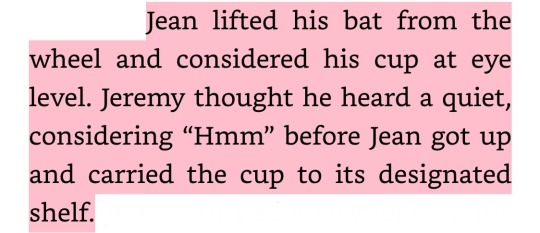
the next time someone asks you what it means to quietly adore someone, have them read jeremy’s pov of his first pottery class.
158 notes
·
View notes
Text


Happy "The Bear Season 4" to all those who celebrate 🐻🐻🐻
6K notes
·
View notes
Text
fuuuuck i just realized that the future idealized version of myself cant exist without current me being the catalyst for change and doing hard things. has anybody heard about this
212K notes
·
View notes
Text
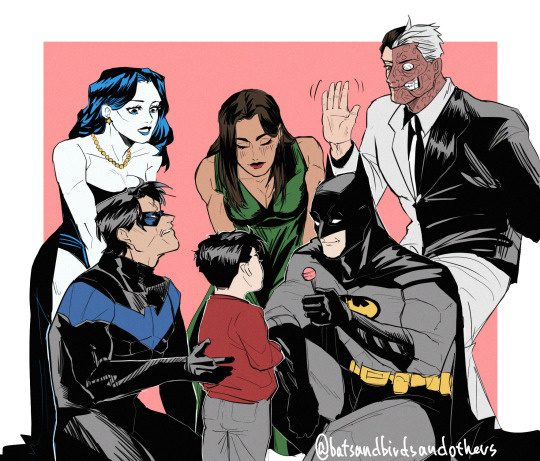
De-aged Jason Todd and his morally-grey parental figures + Dick
25K notes
·
View notes
Text
Critical discussion of characters is a normal part of engaging with fiction, love.
“Just consider Nora uses this app” What are you saying? That if somehow Nora comes across this single post talking about how some of Kevin’s actions were selfish she’d break down and call off his books?
“Nora has plan for Kevin” nothing that comes out in his duology can change his past actions tho, it’s already happened and no matter his POV it’ll never change the fact that he used Jean knowing full well he was gonna get tortured and possibly SAd for it. And that’s okay. It’s fiction and she clearly wanted to write a multifaceted nuanced character that people like OP can rightfully criticize and analyze. That’s the magic about literature.
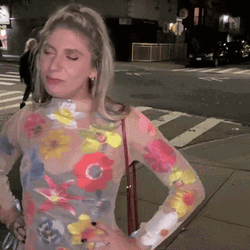
Kevin making Jean promise to stay alive in a place where he knew he’d be tortured and raped on repeat was actually so fucked up and selfish but u guys don’t wanna have that convo. U wanna have the convo where the story revolves around Kevin day. And excuse all the parts of the story where Kevin is someone’s villain! Was he wrong for escaping abuse ? No. Was he fucked up for making Jean promise to stay alive and then using him to escape when he (in his own words) “knew what [riko] would do [jean] as soon as [riko] realized he was gone” and therefore trapping him in an endless cycle of abuse? Yeah. He didn’t give a second thought to Jean after he left that nest. And oh boo hoo he felt guilty. Oh boo hoo he had to witness it all and bear the pain of surviving. He felt guilty bc he knew it was wrong. Neil calls him out on it. “You left him once don’t do it again” . THATS the reason Kevin sent him to usc. Not because of Jean’s crush. Not out of the goodness of his heart. He did it for the same reason he’s done everything. Guilt
213 notes
·
View notes

